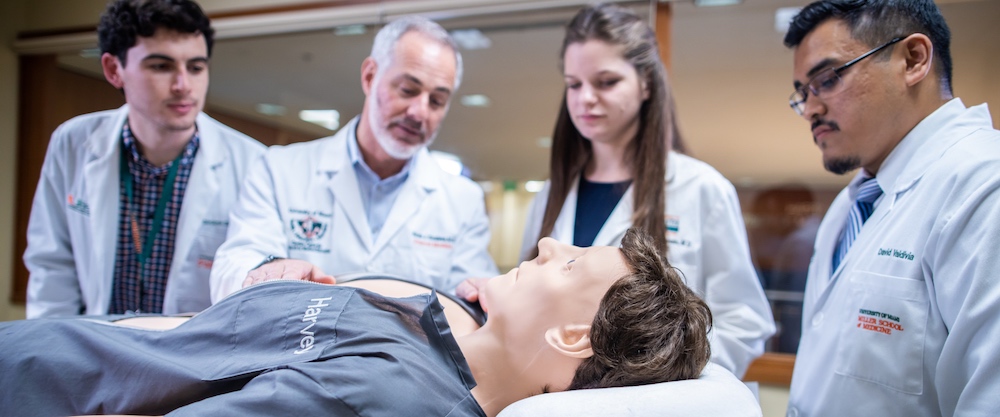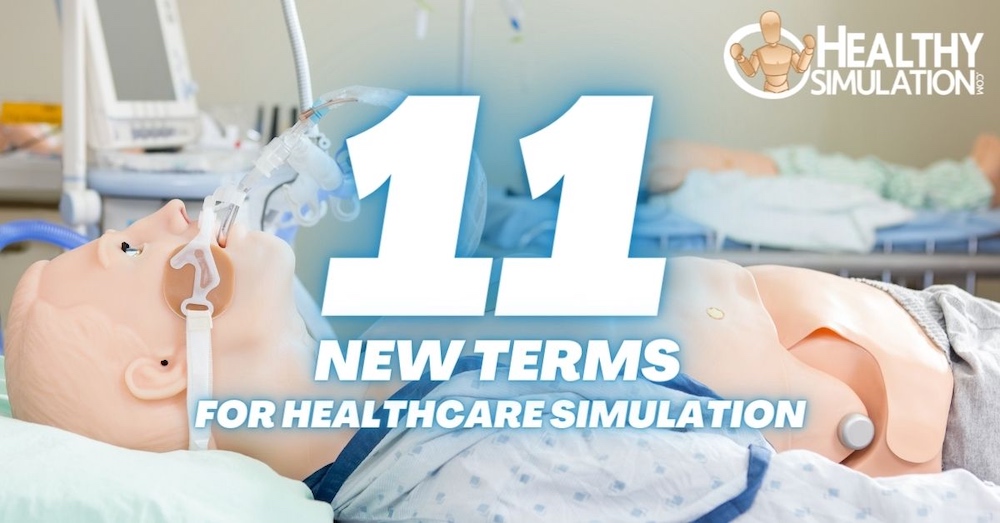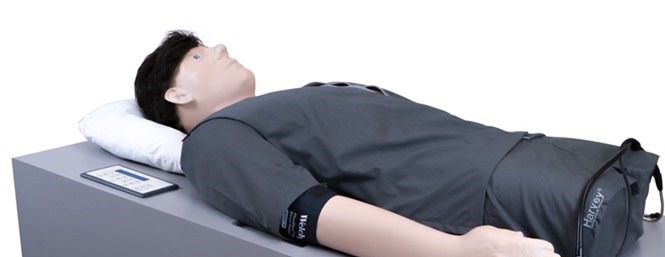Gordon Center for Simulation and Innovation in Medical Education
The Gordon Center for Simulation and Innovation in Medical Education (formerly referred to as GCRME) is a designated Center of Excellence of the University of Miami Miller School of Medicine in Miami, Florida. The Gordon Center training facility applies advanced technology to medical simulation education for healthcare professionals and learners. Established over 45 years ago, the Gordon Center currently helps to educate learners at more than 2,000 medical centers and agencies worldwide. The simulation center also conducts outcome-based research to rigorously assess the effectiveness and impact of healthcare simulation and technology-based training programs created at Gordon Center.
Today, physicians, physician assistants, nurses, paramedic/firefighters and instructors all use the educational systems and training curricula developed at the Gordon Center. The 34,000-sq. ft. state-of-the-art facility includes a high technology auditorium, self-learning laboratory and a standardized patient training area. In addition to the capability for healthcare simulation and design engineering, production and manufacturing, Gordon Center houses an emergency rescue vehicle, a car for extrication of trauma victims, disaster response decontamination showers and a mock emergency department.
The Gordon Center offers various training programs such as cardiology and emergency medicine on blended learning platforms. What makes Gordon Center curricula different from others are the realistic “case-based,” multimedia healthcare simulation scenarios that emphasize the humanistic aspects of medicine. The instruction combines online interactive educational materials with face-to-face classroom methods. This format allows learners to control the place, path, or pace of their learning. All material and tutorials used by the Gordon Center are based on the latest national surveys and guidelines from certification boards such as the American Academy of Neurology and American Board of Emergency Medicine.
Sponsored Content:
The Gordon Center’s most enduring example of creative healthcare simulation work comes in the form of Harvey, a cardiopulmonary patient simulator. Harvey was first introduced in 1968 and is used to simulate any cardiac disease, including blood pressure, breathing, pulses, heart sounds and murmurs. The patented Harvey technology also simulates lung disease, and is portable and cost-effective.
The Center is still home to Harvey as well as UMedic, and also offers pre-hospital and emergency healthcare skills training programs for medical providers, hospitals and health systems across the United States. According to the Gordon Center, a nursing simulation curriculum incorporating Harvey has been incorporated and successfully evaluated in a study at multiple nursing schools. Through this curriculum, Harvey helps to train tens of thousands of learners worldwide.
Sponsored Content:
To date, the Gordon Center has been recognized with several national awards for educational excellence and by the American College of Cardiology and American Medical Association. In 2018, the Gordon Center was also recognized with one of the inaugural ASPIRE for Excellence Awards in Simulation by the International Association for Medical Education.
Who Was Michael S. Gordon?
Cardiologist Michael S. Gordon revolutionized medical education not only in Miami, but around the world. In his work as a cardiologist, Gordon recognized that healthcare simulators could help medical learners improve their cardiac examination skills. His vision was to create an environment where innovation, healthcare simulation and education came together.
In the late 1960s, that vision took shape when he began his work in clinical simulation, which ultimately led to the creation of the Medical Training and Simulation Laboratory in Miami, Florida in 1980. As his work expanded beyond healthcare simulation, the name of his center was changed to the Center for Research in Medical Education. Then in 2005, Gordon’s name was added to the center to establish and celebrate the opening of the University of Miami Michael S. Gordon Center for Research in Medical Education.
In 1968, Gordon built his first healthcare simulation simulator, Harvey, named after his mentor Proctor Harvey, M.D. This mannequin’s creation was just the beginning of Gordon’s simulator innovations. In the 1980s, the Chicago native further developed an innovative computer-based learning system called UMedic to train learners, physicians, nurses, emergency responders and military personnel to save lives.
“[Gordon] was a pioneer and created a remarkable foundation,” said Barry Issenberg, M.D., Director of the Gordon Center. “It is the goal of the Center to carry out his mission every day and honor his legacy as a clinician, educator and visionary.”
Gordon Center’s Life-Save-Cycle
The Gordon Center’s Life-Save-Cycle powers an operational and functional impact to save human lives. The Cycle consists of our three continuously evolving and interconnected disciplines: simulation, innovation and education. As each discipline progresses and builds momentum, they empower individual healthcare professionals’ skills and our multi-disciplined teams’ capabilities. Additionally, these disciplines power a more comprehensive integration of the Center’s resources that result in the ability to deliver highly-effective outcome-based initiatives that save more lives with greater efficiency.
In terms of its collective impact, Gordon Center’s Life-Save-Cycle allows the facility to continuously adapt, evolve and scale the impact of positive outcome-based initiatives to increase patient safety outcomes. The initiative’s impact on culture is evident in the relentless pursuit of excellence in the Gordon Center’s academics, teaching, training, publishing and quality care. The Cycle empowers the effectiveness of Gordon Center’s employee competencies and decision-making skills.
Gordon Center’s Cycle reflects their mindset at the heart of the Gordon Center. The Life-Save-Cycle permeates every aspect of the Center’s culture, and impacts the way staff develop and implement protocols and processes, courses and programs; and how staff ultimately deliver services. It also inspires higher utilization of their resources; directs our strategies; and drives excellence, quality, and integrity throughout the world’s professional community. The initiative energizes the personal sense of urgency, readiness and action-oriented responsiveness required in mission-critical settings.
Ultimately, the Gordon Center is an ever-evolving program. The facility functions as a living, evolving and growing system that reduces human error and patient interaction time to save more lives. Gordon Center aims to achieve this at lower costs to both patient and provider. The underpinning of the Center’s core belief is that medical education should be a collaborative, experiential and evolving lifelong learning process. Learn more on the Gordon Center for Simulation and Innovation in Medical Education website or read these articles below.
GCRME Simulation Education Latest News

Latest Clinical Simulation News From Around the World | December 2022
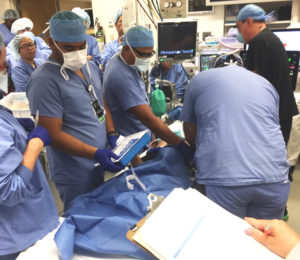
In Situ Simulation Prepares Rapid Response Teams at Gordon Center
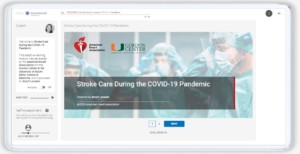
Gordon Center Partners with AHA to Offer Online Course: Stroke Care During COVID-19
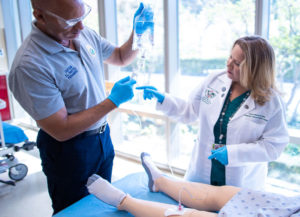
Gordon Center Offers Powerful Curriculum for Clinical Simulation Learners
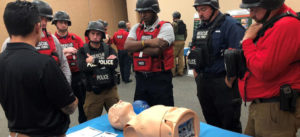
Key Updates From Michael S. Gordon Center for Simulation and Innovation in Medical Education
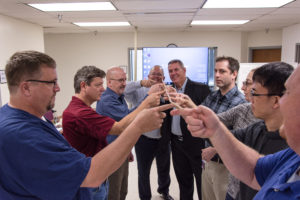
iSIM——改进模拟教学方法
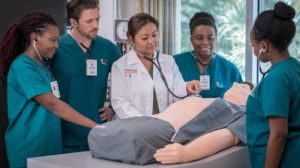
A Closer Look at Harvey: The Leading Cardiopulmonary Patient Simulator From the Gordon Center
Sponsored Content:



